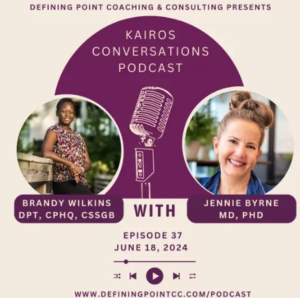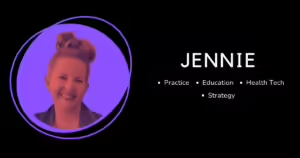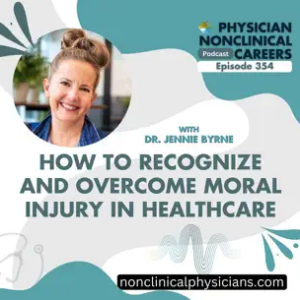Early Retirement
Why should we care about moral injury?
Reason #1: Early retirements – clinicians adjust their expectations for spending so they can leave before age 65.
Last month, I received a curious letter in the mail. Since moving to North Carolina 15 years ago, we have seen the same pediatrician. I don’t know her age, but Dr. O appears to be the same age as me, in her late 40s or early 50s.
The letter said that Dr. O is retiring from the practice of medicine and will no longer be available to be our pediatrician. When I saw this letter I was surprised. I always assumed Dr. O was the type of physician who would be practicing medicine long into her 60s. She appeared to have a comfortable position and a well-run office to support her.
I don’t know what was happening behind the scenes with Dr. O and her office. However, I do know that many physicians and other clinicians are opting for early retirement.
Approximately 30% of physicians now retire between the ages of 60 and 65, while around 12% retire even before reaching 60 years of age. (American Medical Association, May 2023)
When I talk with providers as a fellow physician, many of them tell me in hushed tones that they are planning for an early retirement. Fresh out of medical school, they assumed they would be wealthy. Student loans would easily be paid off, they could get the big house, the big car, and pay for expensive travel and education for their children.
Reality for many physicians coming out of training in the 2000s is very different. The average medical student graduate owes $250,990 in total student loan debt (Student Loan Statistics, Hanson, 2020). Choosing primary care or a specialty like psychiatry means a lower-than-expected salary than you might expect. On average, family medicine physicians earn $224K per year; despite being specialists with additional years of training, psychiatrists earn $247K per year (US Bureau of Labor Statistics, 2022).
However, many physicians continued to work in primary care or other low-paying medical specialties because it was meaningful work and they felt respected and autonomous. Moral injury in healthcare has changed this.
When moral injury happens in healthcare, the feelings of pride, respect, and autonomy go out the window. Working in a system where you feel like a cog that can be swapped in and out kills autonomy. Quiet belittling through ignored requests, mountains of busywork, and being reprimanded by angry patients kills respect. It is difficult to feel pride in your work when you are constantly faced with inequities of the system and your inability to change it.
So, slowly and quietly, physicians have changed their expectations. No longer do they expect the trappings of wealth. No longer do they assume they can pay for expensive educations.
Physicians and other providers have entered a scarcity mindset where they think about how they can better lower their expectations and save their money so they can exit the system. They plan for early retirement, and if they are like Dr. O, they leave medicine in their 50s.
This is bad – very bad – for society.
Having fewer seasoned physicians and providers in their 50s and 60s (and 70s and maybe even 80s) is bad for society. In today’s era of moral injury, leadership is more important than ever. Some of this leadership needs to come from the generation that has seen the past, who can share their experiences. Older physicians can lean into the system to make change, without fear of derailing an early career.
In my opinion, one of the most important ways to minimize moral injury is to give senior clinical leaders an authentic voice where they can translate the moral injury to other parts of the healthcare ecosystem, including the operations and finance teams. If there are no senior clinical leaders, this tactic cannot be used.
Think about if – if you are 21 when you enter medical school, and you take four years to finish medical school, then four years to finish residency, you are already 29 years old. This is assuming you don’t take any gap time out of school and you don’t go into a specialty requiring a longer residency or fellowship. So let’s say you are 30 when you finish training.
If you, like Dr. O, retire at 50, that means that you have spent 20 years practicing medicine. This is after spending the first 30 years of your life in training to be a physician.
Society cannot financially afford to spend 30 years training people for them to have 20 years in practice, then retire. Having gone through medical school and residency, I can tell you it is no joke. It is grueling and it requires sacrificing a large part of your 20s. It is hard on your mind and your body. It is hard on relationships and families. It is hard on your financial security.
If I were to go back in time to the first day of medical school, if you were to tell me that I would be making all these sacrifices to come out of training with a mountain of debt, decreased expectations around lifestyle, and that I would have to retire at age 50 because I felt the burden of moral injury….
I would 100% have never gone into medicine in the first place.
This is what we risk when we build moral injury. We risk not only Dr. O and the current generation of physicians. We risk the future generations of physicians.
I will miss Dr. O and all the other physicians who are retiring early. As I age, I will need more medical care. Who will be there to care for me?







